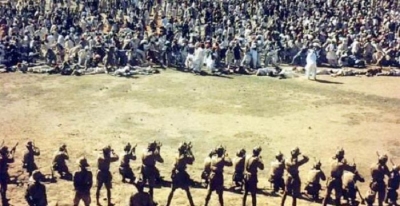
The Anarchical and Revolutionary Crimes Act of 1919, popularly known as the Rowlatt Act, was a legislative council act passed by the Imperial Legislative Council in Delhi on 18 March 1919, indefinitely extending the emergency measures of preventive indefinite detention, incarceration without trial and judicial review enacted in the Defence of India Act 1915 during the First World War. It was enacted in light of a perceived threat from revolutionary nationalists to organisations of re-engaging in similar conspiracies as during the war which the Government felt the lapse of the Defence of India Act would enable.
It is also called as a Black Act by indian . These bills came to be known as “Black Bills”. They gave enormous powers to the police to search a place and arrest any person they disapproved of without warrant. Despite much opposition, the Rowlatt Act was passed on 18 March 1919. The purpose of the act was to curb the growing nationalist upsurge in the country.
The Rowlatt Act came into effect on 21 March 1919. In Punjab the protest movement was very strong, and on 10 April two leaders of the congress, Dr. Satyapal and Saifuddin Kitchlew, were arrested and taken secretly to Dharamsala.
The army was called into Punjab, and on 13 April people from neighbouring villages gathered for Baisakhi Day celebrations and to protest against deportation of two important Indian leaders in Amritsar, which led to the infamous Jallianwala Bagh massacre of 1919.
Accepting the report of the Repressive Laws Committee, the Government of India repealed the Rowlatt Act, the Press Act, and twenty-two other laws in March 1922.
Picture Credit : Google




